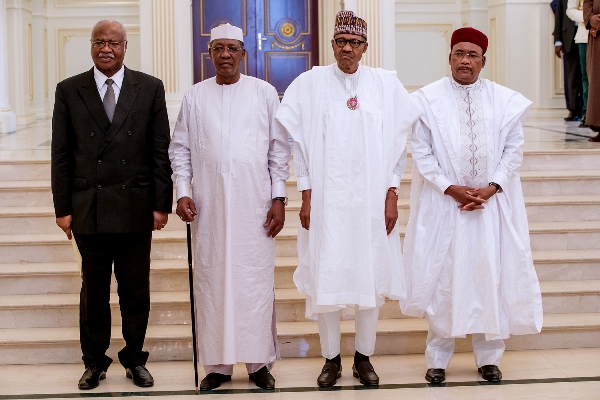The Economic Commission for Africa (ECA) has reiterated the need for African countries to accelerate economic transformation through effective implementation of the African Continental Free Trade Area (AfCFTA).
The commission Director, Regional Integration and Trade Division, Stephen Karingi, said this in a statement.
Karingi made the call while addressing participants at the opening of the third African Trade Policy Centre (ATPC) Steering Committee Meeting (SCM) in Accra, Ghana.
He said Africa would mull its next steps toward a common market with AfCFTA.
“Thanks to AfCFTA, the continent is no longer a helpless bystander as developed countries pursue their own strategic interests at Africa’s expense,” he said.
“AfCFTA now offers the perfect platform for Africa to pursue policies of strategic autonomy just like everyone else is doing,” he added.
According to Karingi, AfCFTA is a development tool that can help Africa tackle many challenges, such as food insecurity, joblessness, marginalisation and health insecurity, among others, if fully implemented.
“The key to succeeding in this endeavour lies in our ability to use AfCFTA as a platform for Africa’s industrialisation.
“To this end, ECA is supporting several initiatives, including developing the electric battery value chain in the Democratic Republic of Congo and Zambia,’’ he said.
The ATPC Coordinator, Melaku Desta, while welcoming the members of the committee, thanked the Government of Canada for its long-standing support to the ATPC for nearly 20 years now.
Desta appreciated AfCFTA Secretariat, AU Commission, Regional Economic Communities (RECs), representatives of the organised African private sector and civil society, and other Committee members for supporting the work of the ATPC.
He described the Steering Committee as ATPC’s principal governance mechanism that provided oversight and guidance for its overall direction and strategic priorities.
Similarly, Miss Marjorie Cheron, Co-Chairperson of the Steering Committee and representative of Global Affairs Canada, reiterated the importance of AfCFTA.
Cheron described AfCFTA as a game changer that promised to create a stable business environment with common rules that would establish a single market of significant size.
Cheron informed the committee that Canada was working on an economic cooperation strategy with Africa, which would set the vision for the future of the economic partnership.
According to her, this will establish a robust, long-lasting, and collaborative trade and investment framework for Africa’s inclusive economic growth.
Chéron said in a few weeks, Canada would host the AU Commission to engage in the first Trade Policy Dialogue to focus on trade policy topics and investment issues.
The Director of Institutional Matters and Programmes Coordination at AfCFTA Secretariat, Prudence Sebahizi, applauded the ATPC’s role as an African think tank on trade policy and related matters.
According to Sebahizi, the ATPC provides an indigenous voice on some of the most pressing regional, continental, and global trade policy issues that determine Africa’s future in the world.
“ATPC can assist the continent in the need to interrogate the different reports that are released by a host of institutions globally.
“It can develop a harmonised methodology to assess the likely impact of AfCFTA on intra-African trade, continental GDP, the welfare of citizens, industrialisation and similar parameters,’’ he said.
Sebahizi outlined a list of issues that should guide the work of the ATPC.
He said this included a continued search for an explanation as to why Africa, in spite of its endowment with abundant natural and human resources, remained far behind all other parts of the world.
Sebahizi said the centre should also find out what AfCFTA could contribute to change this reality, maximise the positive impact of the AfCFTA and expedite Africa’s transformation.
The Steering Committee applauded the relevance, quality and volume of work being done by the ATPC, approved its narrative and financial report for 2022 and the work plan and budget for 2023.
It also commended ECA for its continued role in championing Africa’s social and economic development.














